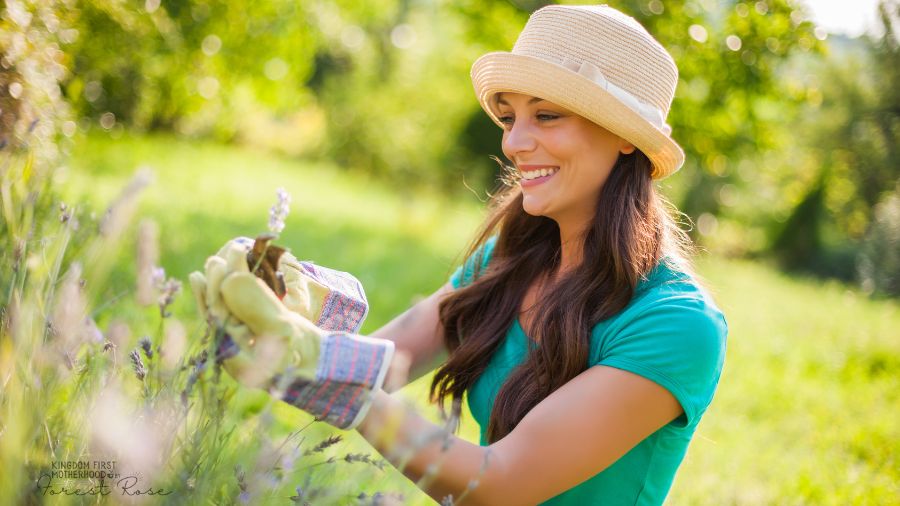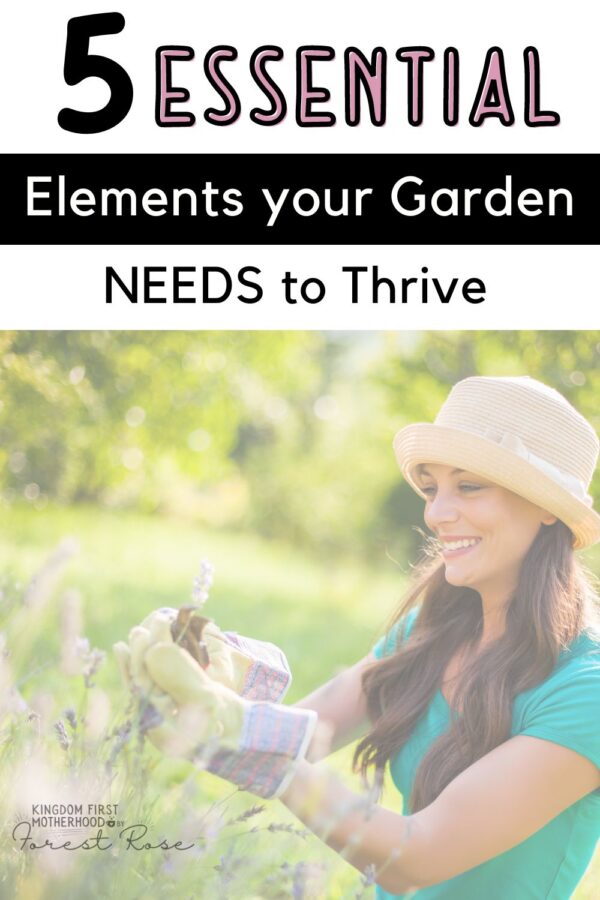Creating a thriving garden is such a rewarding experience. It not only make your outdoor space pretty but also provides a serene retreat from the hustle and bustle of daily life. In these busy times, more and more people are discovering the joys of gardening. Whether it’s the calming effect of tending to plants or the satisfaction of growing your own veggies, there’s something incredibly therapeutic about getting your hands in the soil.

With the rising cost of groceries and the frequent recalls on food, growing your own produce has never been more appealing. I’ve started to notice that more of my neighbors and friends are turning their backyards into vibrant, productive gardens. There’s a real sense of accomplishment and peace of mind in knowing exactly where your food comes from and that it’s free from harmful chemicals.
Whether you’re a seasoned gardener or just starting out, there are a few key elements every garden needs to flourish. I’ve seen people transform their backyards into beautiful, blooming sanctuaries, and it’s clear that gardening has become a beloved pastime for many. There’s a real sense of community in sharing tips, swapping plants, and admiring each other’s hard work.
From practical tools to those lovely aesthetic touches, there are certain essentials that make all the difference. It’s not just about having the right equipment, but also about creating a space that reflects your personality and brings you joy. For me, adding a cozy bench where I can sit and enjoy the view with a cup of tea has made my garden feel like a true extension of my home.
So, if you’re ready to dive into gardening, here are five essentials that will help your garden grow and thrive, making it a beautiful sanctuary for you to enjoy.
Contents
1. Quality Soil and Compost
The foundation of any great garden is its soil. Quality soil is crucial for the growth and health of your plants. It should be rich in nutrients and well-aerated to allow roots to spread easily. To improve the quality of your soil, incorporate compost regularly. Compost not only enriches the soil with essential nutrients but also improves its structure, water retention, and drainage capabilities. You can create your own compost pile with kitchen scraps, yard waste, and other organic materials. This not only benefits your garden but also reduces household waste.
2. Adequate Watering System
Water is the lifeblood of any garden, and ensuring your plants get the right amount is vital for their health and growth. For a sustainable approach, consider installing an irrigation system that can provide consistent and even watering, tailored to the size of your garden and local climate. Drip irrigation systems are particularly effective as they deliver water directly to the roots of the plants, minimizing wastage and preventing the foliage from getting too wet, which can lead to disease. For smaller gardens or container plants, a well-designed watering can or garden hose with a spray attachment might suffice.
3. Proper Lighting
Plants need light to perform photosynthesis, so adequate sunlight is essential. Most flowering plants and vegetables require at least six hours of direct sunlight per day. Observe your garden throughout the day to determine which areas receive the most sunlight and plan your planting accordingly. For gardens with limited natural light, consider planting shade-tolerant plants or using grow lights for indoor gardening efforts.
4. Garden Shed
A garden shed is not just a storage space—it’s a central hub for your gardening activities. A well-organized shed keeps all your gardening tools, seeds, fertilizers, and pots in one convenient location. Opt for a Shed Base with enough space to store large tools like lawn mowers and rakes as well as shelves for smaller items. Make sure your shed is weather-resistant to protect your tools from rust and other damage. Adding a potting bench inside your shed can also provide a comfortable space to work on your plants regardless of the weather outside.
5. Diverse Plant Selection
Diversity is not only pleasing to the eye but also beneficial for the garden’s ecosystem. Mixing different types of plants can help prevent pests and diseases from spreading too widely. Include a variety of annuals, perennials, shrubs, and trees to create a balanced and vibrant garden. Consider the different blooming times of each plant to ensure continuous color throughout the seasons. Additionally, incorporating plants that attract beneficial insects, such as bees and butterflies, can aid in pollination and enhance the overall health of your garden.
Here are five extra handy gardening hacks to make your gardening experience easier and more enjoyable:
- DIY Compost Bin: Turn kitchen scraps and yard waste into nutrient-rich compost by creating your own compost bin. Use an old trash can or wooden pallets to build a simple compost container. Layer green (nitrogen-rich) and brown (carbon-rich) materials, and turn the pile regularly. This helps reduce waste and provides your garden with organic fertilizer.
- Eggshell Seed Starters: Save your eggshells and use them as biodegradable seed starters. Rinse the shells, poke a small hole in the bottom for drainage, and fill them with seed-starting soil. Plant your seeds in the shells, and when they’re ready to be transplanted, you can plant the entire shell in the ground. The eggshell will decompose and provide nutrients to the growing plant.
- Coffee Grounds for Soil Enrichment: Used coffee grounds are a fantastic addition to your garden soil. They add organic matter, improve drainage, and help with water retention. Sprinkle them around your plants or mix them into your compost. Just be sure not to overdo it, as too much coffee can make the soil too acidic for some plants.
- Epsom Salt for Plant Boost: Epsom salt is a great way to give your plants a magnesium and sulfur boost. Dissolve one tablespoon of Epsom salt in a gallon of water and use it to water your plants once a month. This is especially beneficial for tomatoes, peppers, and roses.
- Natural Pest Control with Companion Planting: Keep pests at bay by planting certain plants together. For example, marigolds deter aphids and nematodes, while basil can repel mosquitoes and flies. Companion planting not only helps with pest control but also promotes healthy growth and can enhance the flavor of some vegetables.
A thriving garden is really about a mix of careful planning and a lot of love. Making sure you’ve got rich soil, enough water, the right amount of light, a handy garden shed, and a variety of plants are all key to creating a garden that will flourish. Each piece of the puzzle plays a vital role in creating both a sustainable and beautiful garden, giving you a slice of paradise to enjoy all year long.
So, grab your gardening tools and let’s dive in! There’s nothing quite like the joy of watching your garden grow, knowing that with a bit of care and attention, you’ve created something truly special. Here’s to turning your outdoor space into a little haven right at home!

For more homeschooling inspiration, tips and encouragement, make sure to follow KFH on Facebook, Pinterest, Instagram and Twitter, and subscribe to our Newsletter for some FREE GOODIES!
Forest Rose is a God Loving, Blessed Wife, & Mama to 3 girls. She’s passionate about lifting moms out of the trenches that are discouraged, overwhelmed, or feeling alone or isolated. Her hope is to point them to Christ and equip them to rise up with a newfound hope and joy within, that He alone can provide. Besides blogging, she also loves to create printables!



Leave a Reply